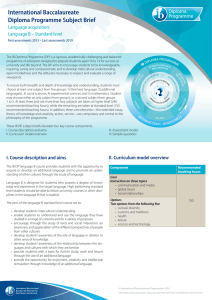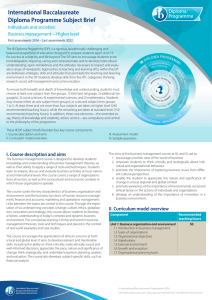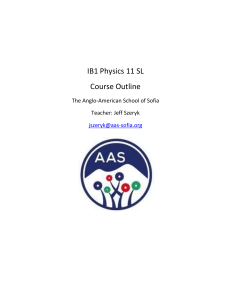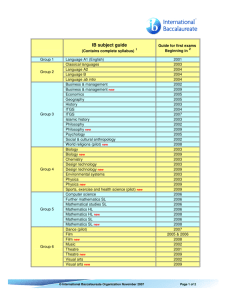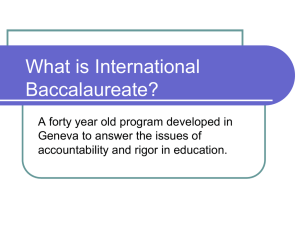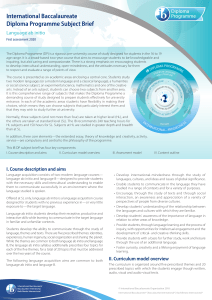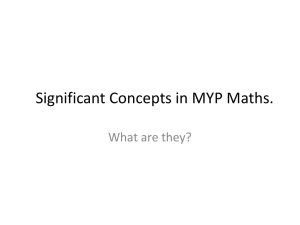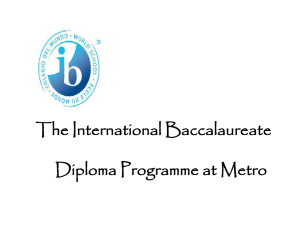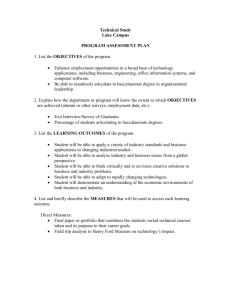Language ab initio guide Updated for first exams 2015
advertisement
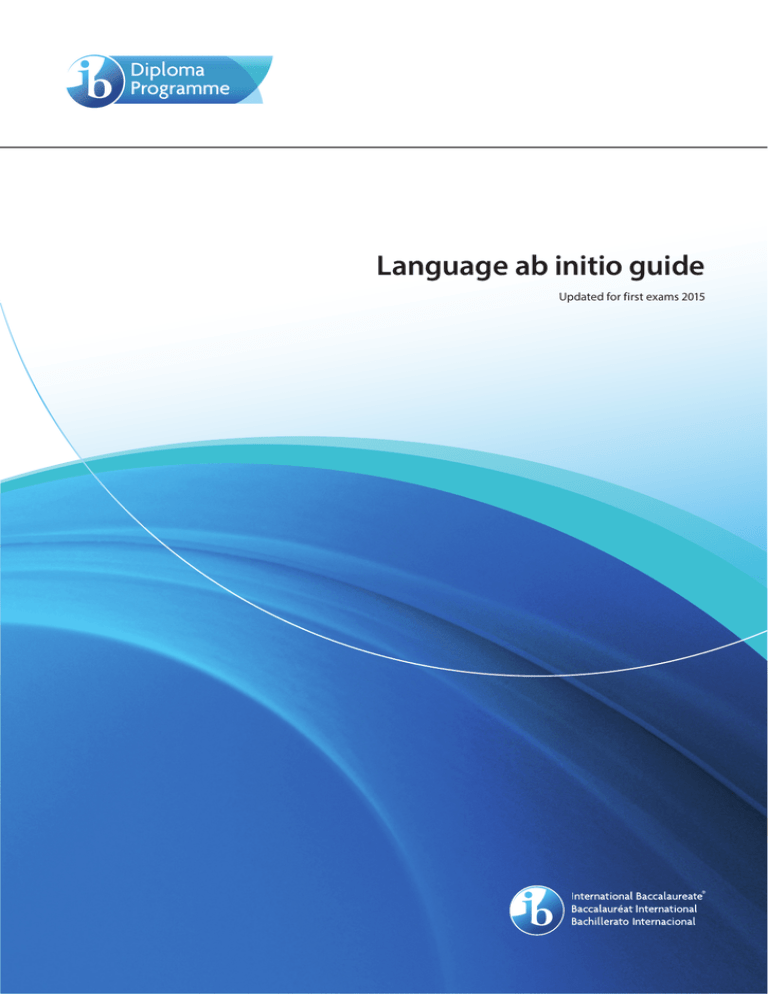
Language ab initio guide Updated for first exams 2015 Language ab initio guide Updated for first exams 2015 Diploma Programme Language ab initio guide Published March 2011 Updated August 2013 Updated August 2014 Published on behalf of the International Baccalaureate Organization, a not-for-profit educational foundation of 15 Route des Morillons, 1218 Le Grand-Saconnex, Geneva, Switzerland by the International Baccalaureate Organization (UK) Ltd Peterson House, Malthouse Avenue, Cardiff Gate Cardiff, Wales CF23 8GL United Kingdom Website: www.ibo.org © International Baccalaureate Organization 2011 The International Baccalaureate Organization (known as the IB) offers four high-quality and challenging educational programmes for a worldwide community of schools, aiming to create a better, more peaceful world. This publication is one of a range of materials produced to support these programmes. The IB may use a variety of sources in its work and checks information to verify accuracy and authenticity, particularly when using community-based knowledge sources such as Wikipedia. The IB respects the principles of intellectual property and makes strenuous efforts to identify and obtain permission before publication from rights holders of all copyright material used. The IB is grateful for permissions received for material used in this publication and will be pleased to correct any errors or omissions at the earliest opportunity. All rights reserved. No part of this publication may be reproduced, stored in a retrieval system, or transmitted, in any form or by any means, without the prior written permission of the IB, or as expressly permitted by law or by the IB’s own rules and policy. See http://www.ibo.org/copyright. IB merchandise and publications can be purchased through the IB store at http://store.ibo.org. Email: sales@ibo.org International Baccalaureate, Baccalauréat International and Bachillerato Internacional are registered trademarks of the International Baccalaureate Organization. IB mission statement The International Baccalaureate aims to develop inquiring, knowledgeable and caring young people who help to create a better and more peaceful world through intercultural understanding and respect. To this end the organization works with schools, governments and international organizations to develop challenging programmes of international education and rigorous assessment. These programmes encourage students across the world to become active, compassionate and lifelong learners who understand that other people, with their differences, can also be right. Introduction Purpose of this document This publication is intended to guide the planning, teaching and assessment of the subject in schools. Subject teachers are the primary audience, although it is expected that teachers will use the guide to inform students and parents about the subject. This guide can be found on the subject page of the online curriculum centre (OCC) at http://occ.ibo.org, a password-protected IB website designed to support IB teachers. It can also be purchased from the IB store at http://store.ibo.org. Additional resources Additional publications such as teacher support materials, subject reports, internal assessment guidance and grade descriptors can also be found on the OCC. Specimen and past examination papers as well as markschemes can be purchased from the IB store. Teachers are encouraged to check the OCC for additional resources created or used by other teachers. Teachers can provide details of useful resources, for example: websites, books, videos, journals or teaching ideas. First examinations 2015 1 Language ab initio guide Introduction The Diploma Programme The Diploma Programme is a rigorous pre-university course of study designed for students in the 16 to 19 age range. It is a broad-based two-year course that aims to encourage students to be knowledgeable and inquiring, but also caring and compassionate. There is a strong emphasis on encouraging students to develop intercultural understanding, open-mindedness, and the attitudes necessary for them to respect and evaluate a range of points of view. Language ab initio guide 2

